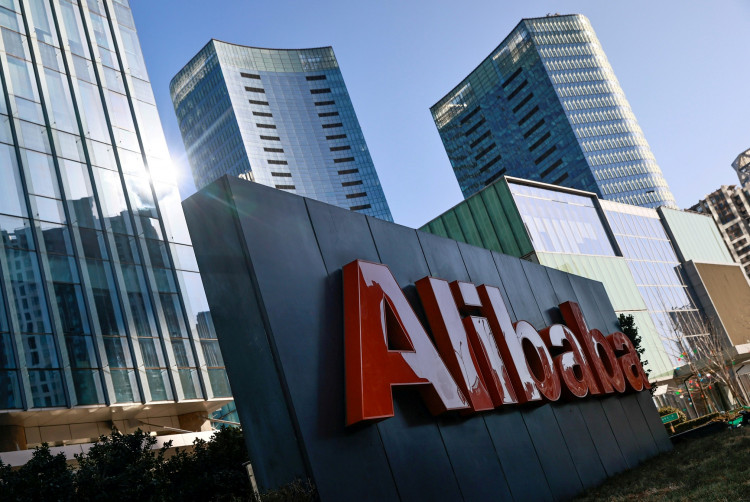Alibaba shares climbed more than 11% in premarket trading Thursday, as the Chinese e-commerce giant posted stronger-than-expected earnings, driven by a rebound in cloud services and international sales. The company reported net income of 48.95 billion yuan ($6.72 billion) for the quarter ending December 31, exceeding analyst expectations of 40.6 billion yuan. Revenue rose 8% to 280.15 billion yuan ($38.6 billion), the fastest pace of growth in over a year.
CEO Eddie Wu highlighted Alibaba's progress in artificial intelligence and cloud computing. "This quarter's results demonstrated substantial progress in our 'user first, AI-driven' strategies and the re-accelerated growth of our core businesses," Wu said in a statement. "Our Cloud revenue growth reignited to double digits at 13%, with AI-related product revenue achieving triple-digit growth for the sixth consecutive quarter."
Alibaba's Cloud Intelligence Group posted 13% year-on-year revenue growth to 31.74 billion yuan ($4.3 billion), marking its strongest quarterly performance in nearly two years. Meanwhile, international commerce sales surged 32%, boosted by strong performances from AliExpress, Trendyol, and Lazada.
The company's core e-commerce business, Taobao and Tmall Group, recorded 5% annual revenue growth to 136.09 billion yuan in the December quarter. Alibaba's growing presence in AI-driven cloud services and international retail markets has helped the company regain momentum after years of regulatory challenges in China.
Alibaba's stock has gained nearly 50% this year in both New York and Hong Kong, driven by a broader resurgence in Chinese tech stocks. Investor optimism has been further fueled by Beijing's $10 trillion yuan stimulus plan aimed at revitalizing consumer spending and stabilizing the property market.
Wu emphasized Alibaba's aggressive expansion in AI infrastructure. "The AI era presents a clear and massive demand for infrastructure. We will aggressively invest in AI infrastructure," he told analysts on an earnings call. "Our planned investment in cloud and AI infrastructure over the next three years is set to exceed what we have spent over the past decade."
Alibaba's AI ambitions gained additional traction following its partnership with Apple Inc. to integrate AI features into iPhones sold in China. The company's Qwen AI model, launched in 2023, has continued to evolve, with its latest version, Qwen 2.5, reportedly outperforming local competitors.
Alibaba's return to favor with Chinese regulators has also contributed to its stock resurgence. Co-founder Jack Ma, who had largely stayed out of the public eye since 2020, was among business leaders who attended a rare closed-door meeting led by President Xi Jinping this week. The summit, which emphasized private-sector confidence and innovation, was seen as a sign that Beijing is easing its stance on tech firms after years of regulatory crackdowns.




